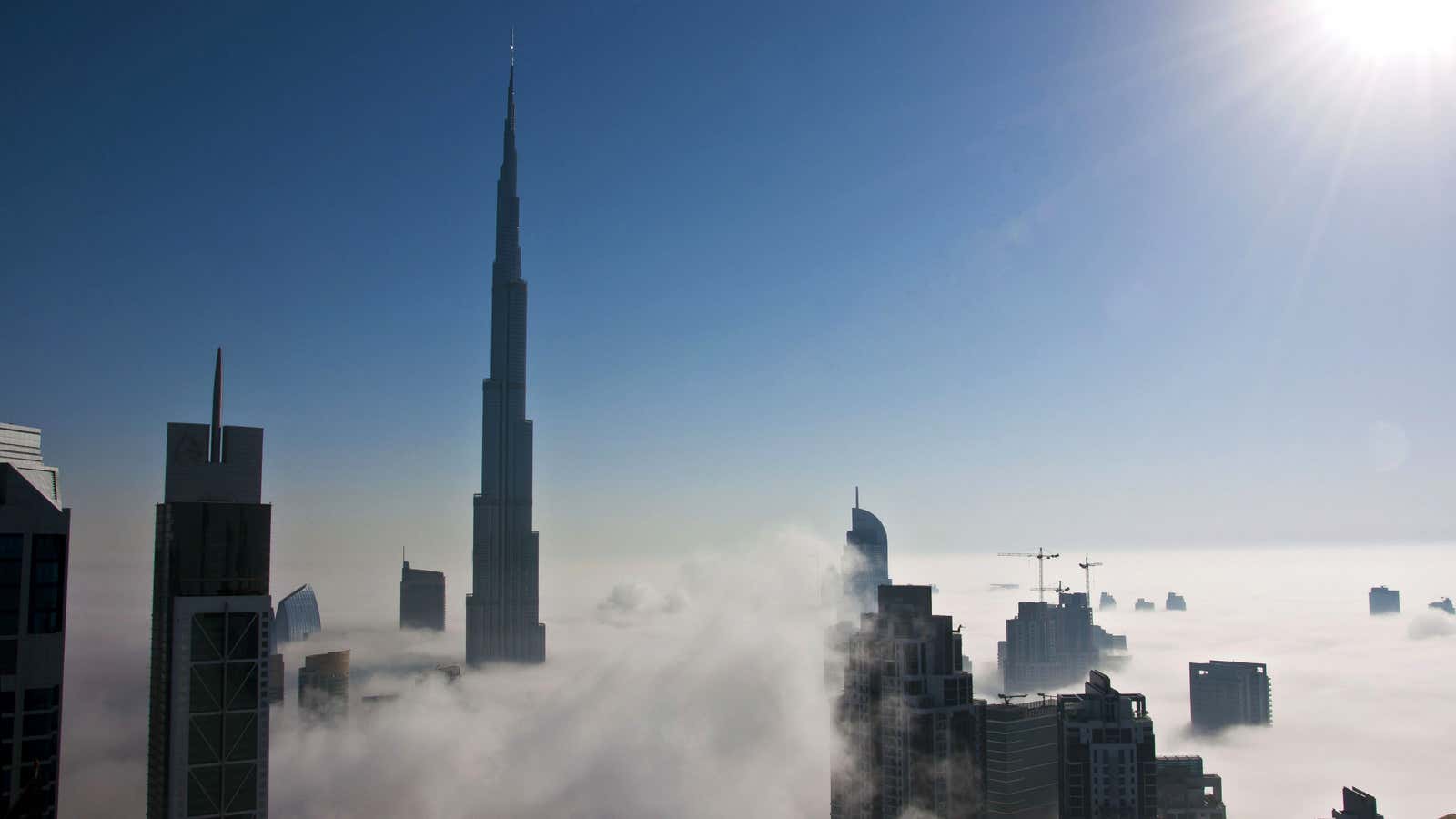The turmoil in countries like Egypt and Syria may have wrecked their economies, but some of their neighbors are doing nicely out of it. International investors are driving Dubai’s real estate market, accounting for more than 60% of the 53 billion dirhams ($14.4 billion) worth of investments in the first half of 2013, and while Indians, Pakistanis and Britons remained the top foreign buyers, there’s a new investor class making a big splash: Buyers from crisis-hit Arab regions.
The increase in spending by buyers from Arab countries outside the six-member Gulf Cooperation Council more than doubled to 5 billion dirhams, outpacing all other categories, according to the Dubai land department. Investors from Jordan led the way with investments of 1 billion dirhams, followed by buyers from Lebanon and Egypt. The growing trend of residents from areas affected by turmoil purchasing property in Dubai was highlighted by property management firm Asteco in its latest report (pdf).

Overall, citizens of the United Arab Emirates, which includes Dubai, remained the biggest investors. Investment from outside the Gulf surged 73% from a year ago; Indians led the charge, buying 8 billion dirhams worth of real estate followed by Britons and Pakistanis.

This surge in investment comes even as the International Monetary Fund warned that Dubai might need to intervene in its property market to prevent another boom-and-bust cycle. Real-estate prices crashed by more than 50% in 2009 and 2010, triggering a corporate debt crisis that brought the emirate close to default.
Earlier this week, authorities in Dubai took a step towards dealing with the problem by setting up a judicial committee to settle disputes over stalled and canceled projects. The committee will supervise the liquidation of stalled projects and help investors get their money back from developers. Over 200 projects were cancelled between 2009 and 2011, and many of the developers had shut down and left Dubai without informing their customers.
There have been signs that Dubai real-estate prices are rising too fast, too soon. In the first quarter of 2013, home prices in Dubai increased 9%, making it the second most expensive of 55 countries listed by property consultancy firm Knight Frank. Average residential rentals have now grown by over 30% over the past 12 months, prompting real estate consultants CBRE to say the residential sector is showing “increasing signs of overheating.”
